
Digital fluency transforming operations
to counter
PROCESS OBSOLESCENCE
Lorem Ipsum has been the industry’s standard dummy text ever since the 1500s, when an unknown printer took a galley of type and scrambled it to make a type specimen book. Lorem Ipsum is simply dummy text of the printing and typesetting industry. Lorem Ipsum has been the industry’s standard dummy text ever since the 1500s, when an unknown printer took a galley of type and scrambled it to make a type specimen book. Lorem Ipsum is simply dumm
Evolved
Lorem ipsum dolor sit amet, consectetur adipiscing elit. Ut elit tellus, luctus nec ullamcorper mattis, pulvinar dapibus leo.
Transformed
Lorem ipsum dolor sit amet, consectetur adipiscing elit. Ut elit tellus, luctus nec ullamcorper mattis, pulvinar dapibus leo.
Venture Courses
Business innovation creating new market value to counter BUSINESS OBSOLESCENCE.
Lifestyle Courses
Curated accredited programming for target segments to counter SKILLS OBSOLESCENCE.
Digital Courses
Digital fluency transforming operations to counter PROCESS OBSOLESCENCE.

Food Safety Course Level 1
This module is designed to equip learners with the skills and knowledge in following food & beverage safety and hygiene policies and procedures and be able to apply them at the workplace.

Food Safety Course Level 1 (Chinese)
This module is designed to equip learners with the skills and knowledge in following food & beverage safety and hygiene policies and procedures and be able to apply them at the workplace.

Food Safety Course Level 1 (Refresher)
This module is designed to equip learners with the skills and knowledge in following food & beverage safety and hygiene policies and procedures and be able to apply them at the workplace

Food Safety Course Level 1 (Refresher) Chinese
This module is designed to equip learners with the skills and knowledge in following food & beverage safety and hygiene policies and procedures and be able to apply them at the workplace

Food Safety Course Level 1 (AOP)
This module is designed to equip learners with the skills and knowledge in following food & beverage safety and hygiene policies and procedures and be able to apply them at the workplace.

Food Safety Course (FSC) Level 2
To equip food handlers of both retail and non-retail food establishments with the knowledge andskills to follow food safety and hygiene policies and procedures as well as inculcate the rationale ofsome of the practices into food handlers for better understanding and assisted policing in thelicensed food premises.

Food Safety Course (FSC) Level 2 Chinese
To equip food handlers of both retail and non-retail food establishments with the knowledge andskills to follow food safety and hygiene policies and procedures as well as inculcate the rationale ofsome of the practices into food handlers for better understanding and assisted policing in thelicensed food premises.

Food Safety Course Level 3
Implement food safety and hygiene policies and procedures to ensure effective implementation of pre-requisite programmes and Hazard Analysis and Critical Control Points (HACCP)-based Food Safety Management System (FSMS).

Food Safety Course Level 3 Chinese
Implement food safety and hygiene policies and procedures to ensure effective implementation of pre-requisite programmes and Hazard Analysis and Critical Control Points (HACCP)-based Food Safety Management System (FSMS).

WSH for Food and Beverage Operations – Level 2
This module is designed to equip learners with the skills and knowledge to identifyingspecific legalitiesthat are appliedunder WSH, Assessingthe applicabilityof various safety devicesand PPEs, and interpret types and meaningsof common safety signsand hazard symbols.

WSH for Food and Beverage Operations – Level 2 (Chinese)
This module is designed to equip learners with the skills and knowledge to identifying specific legalities that are applied under WSH, Assessing the applicability of various safety devices and PPEs, and interpret types and meanings of common safety signs and hazard symbols.

WSH for Food and Beverage Operations – Level 2 (Synchronous e-Learning)
This module is designed to equip learners with the skills and knowledge to identifying specific legalities that are applied under WSH, Assessing the applicability of various safety devices and PPEs, and interpret types and meanings of common safety signs and hazard symbols.

WSH for Food and Beverage Operations – Level 3
This module is designed to equip learners with the skills and knowledge to assess workplacerisk management actionsand other legal requirementsby the WSH Act, Suggestsafety improvements inusing automated equipmentin the workplace and Appraisethe effectivenessof existing risk controlmeasures.

WSH for Food and Beverage Operations – Level 3 (Synchronous e-Learning)
This module is designed to equip learners with the skills and knowledge to assess workplace risk management actions and other legal requirements by the WSH Act, Suggest safety improvements in using automated equipment in the workplace and Appraise the effectiveness of existing risk control measures.

Environmental Control Coordinator (ECC) Course
This module is designed to equip learners with the skills and knowledge for Roles and Responsibilities of Environmental Control Coordinator (ECC), assist Premises Manager (PM) in developing an ES programme that complies with the requirements and review effectiveness of the ES programme and make recommendations to PM

Environmental Control Coordinator Course (Synchronous E-Learning)
This module is designed to equip learners with the skills and knowledge for Roles and Responsibilities of Environmental Control Coordinator (ECC), assist Premises Manager (PM) in developing an ES programme that complies with the requirements and review effectiveness of the ES programme and make recommendations to PM

Make Classic Breads
This module is designed to equip learners with the skills and knowledge in preparing basic breads. It also includes the types and uses of baking tools, equipment and ingredients.

Make Basic Breads
This module is designed to equip learners with the skills and knowledge in preparing basic breads. It also includes the types and uses of baking tools, equipment and ingredients.

Make Classic Cakes
This module is designed to equip learners with the skills and knowledge in making cake products. It also includes the types and uses of baking tools, equipment and ingredients.

Make Choux Pastries
This module is designed to equip learners with the skills and knowledge in making basic choux pastries product. It also includes the types and uses of baking tools, equipment and ingredients.

Make Tarts & Short-crust Pastries
This module is designed to equip learners with the skills and knowledge in making Tarts and Short-Crust Pastries. It also includes the types and uses of baking tools, equipment and ingredients

Prepare Macaroons
This module is designed to equip learners with the skills and knowledge in making macaroons product. It also includes the types and uses of baking tools, equipment and ingredients.

Intermediate Pastry Preparation
This module is designed to equip learners with the skills and knowledge to use suitable techniquesto prepare ice creams,meringues, entremets, recognize the impactsof temperature on flavourof hot and colddesserts, and determine how thelaminated dough processworks and laminate andrest doughs.

Make Muffins & Scones
This module is designed to equip learners with the skills and knowledge in making muffins and scones. It also includes the types and uses of baking tools, equipment and ingredients

Make Classic Cookies
This module is designed to equip learners with the skills and knowledge in preparing basic cookies. It also includes the types and uses of baking tools, equipment and ingredients.

Prepare Chinese Moist-Heat Dim Sum Dishes
To equip learners with the skills and knowledge in making Chinese Moist-Heat Dim Sum dishes. It also includes the types and uses of baking tools, equipment and ingredients.

Flower Arrangement – Floral Artistry
This module is designed to equip learners with the skills and knowledge to apply design style to make the flower arrangement more impressive and in an artisanal way and condition the floral material and make it last longer.

Urban Farming
This module is designed to equip learners with the skills and knowledge to ensure plants are planted according to established horticulture practices and standards.

Digital Indoor Photography
This module is designed to equip learners with the skills and knowledge to identify and comprehend the usage of various indoor cameras, parts of cameras and accessories, produce the digital pictures according to the shot plans and make corrections necessary to enhance the digital pictures initially produced.

Physical and Mental Care for the Elderly course
This module is designed to equip learners with the skills and knowledge to manage the physical and mental well-being of the elderly
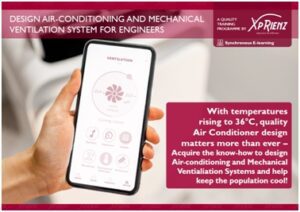
Design Air Conditioning and Mechanical Ventilation System for Engineer
This module is designed to equip learners with the skills and knowledge to determine theeffects of external heaton buildings throughthermal simulations, apply Design forMaintainability (DfM) principles to simplify andeconomize maintenance, and achieve costsavings by developingmore energyefficientACMV systems.
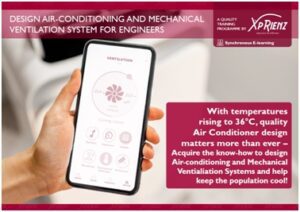
Design Air Conditioning and Mechanical Ventilation System for Engineer (Synchronous)
This module is designed to equip learners with the skills and knowledge to determine theeffects of external heaton buildings throughthermal simulations, apply Design forMaintainability (DfM) principles to simplify andeconomize maintenance, and achieve costsavings by developingmore energyefficientACMV systems.

Aerial Videography
This module is designed to equip learners with the skills and knowledge to familiarize with drones and camera equipmentto optimize capabilities for media production, ensure adherence to local aviation regulationsfor public safety and minimizing legal risks and apply aerial cinematography techniquesto capture 4K quality footage.

Mastering Techniques of Aerial Cinematography
This module is designed to equip learners with the skills and knowledge tooperate aerial filming equipmentto capture compelling aerial shots, utilise storyboarding techniques, flight planning strategies, and post-production tools and operate equipment in adherence to legalregulations for safety and compliance.

Advanced Drone Handling
This module is designed to equip learners with the skills and knowledge tooperate drones and develop optimal unmannedaircraft flight performance parameters, conduct post-flight analysis to optimize the aircraft performance in higher quality standard and escalate major issues to relevant stakeholdersbased on aviation regulations and guidelines.

Service Excellence (level 1)
This module is designed to equip learners with the skills and knowledge on how to project a positive and professional image and go the extra mile in providing excellent service and transfer learning to the workplace.

Customer Service Excellence
This module is designed to equip learners with the skills and knowledge to develop skills to Cater to the needs and expectationsof a diverse range of customers, project the qualities and characteristicsof a service professional and effectively communicate and interactwith customers and stakeholders.

Service Challenges
This module is designed to equip learners with the skills and knowledge to develop skills to anticipate and meetcustomer’s expectations, address service challenges effectivelythrough conflict resolutions and escalate the service complaints to the appropriate stakeholders effectively.

Demonstrate The Service Vision (SSF)
This module is designed to equip learners with the skills and knowledge to demonstrate the service vision and transfer learning to the workplace.

Emerging Technology Synthesis and Business Process Flow (Synchronous e-Learning)
This module is designed to equip learners with the skills and knowledge to appreciate and explain the need for business environment analysis process, the need for stakeholder management and business need in project management.
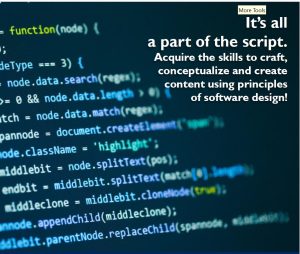
Introduction to Software Design: MVC, OOAD Concepts & Algorithms
This module is designed to equip learners with the skills and knowledge to understand the basics of software design, how to make the right design choice, understand the importance of layering is an application design, understand the importance of MVC architecture, understand algorithms and problem solving for software systems
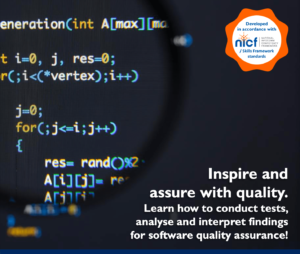
Software Quality Assurance : Planning, Testing & Defect Management (Synchronous E-Learning)
This module is designed to equip learners with the skills and knowledge to understand software quality assurance and the various phases, process, and tools in software testing.

Introduction to User Interface Design
This module is designed to equip learners with the skills and knowledge to understand the basic methodologies used in graphical user inter-face development across delivery channels, understand web-based user interface design, standards and challenges faced, able to build a web-based user interface wireframe/ prototype mapped to the requirements, identify key technical components and trace information flow in and between the user interface components.

Application Development and Hosting (Synchronous E-Learning)
This module is designed to equip learners with the skills and knowledge to develop basic applications with secure features, run routine application tests, etc.
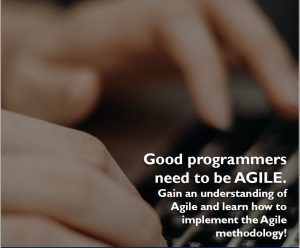
Introduction to Agile: An approach to software development
This module is designed to equip learners with the skills and knowledge to understand software development & the software development life cycle, basics of the Agile Software Development process, concept of Application Programming Interface (API), different tools and technique used in programming, importance of a debugger and appreciate why repetitive task automation is required.

Database Concepts & Design: Working With Databases
This module is designed to equip learners with the skills and knowledge to understand the concepts of a relational database management system (RDBMS), translate project specifications into defining data structures, use structured query language to store, maintain and retrieve data, understand the difference between structured (RDBMS)& unstructured data (NoSQL) and understand data warehousing concepts and processes.

Digitalise Food Service Operations
This module is designed to equip learners with the skills and knowledge to understand trending information and communication technologies (ICT) in the Food and Beverage (F&B) industry.

Compliance with Corporate Policies and Guidelines
This module is designed to equip learners with the skills and knowledge to understanding of the requirements for process (organisation application, content, delivery) for financial audits and prepare adequately for an audit request or auditable event.

Regulatory Compliance in Skills Development Business
This module is designed to equip learners with the skills and knowledge to understand organisational processes, policies and procedures relevant for an accredited training organisation.

Business Acumen Manage Disruptors and Influencers (Synchronous E-Learning)
This module is designed to equip learners with the skills and knowledge to appraise the significant impacts that global changes have on specific organisational development, to analyse impacts from changes in governance and legal structures and systems relevant to the organisational operating environment, to examine technology trends and assess their impact and influence on organisational objectives, to critically determine the potential challenges in incorporating info-communication technology into the organisation.

Stakeholder Management– Connect Further Faster (Synchronous e-Learning)
This module is designed to equip learners with the skills and knowledge to understandstakeholders and managetheir expectations andrequirements, analysestakeholders’ feedback andresolve potential conflictswhich may arise, and cultivatestakeholder relationshipswhile managing projecttimelines.

Business Planning – Grow Further Faster (Synchronous e-Learning)
This module is designed to equip learners with the skills and knowledge to understandthe operating environmentand the organisation’sbusiness goals, determine keycost and revenue driversto analyse businessconditions, and apply relevantmodelling, forecastingand business planningtechniques.

Business Presentation Delivery – Captivate and Convince (Synchronous e-Learning)
This module is designed to equip learners with the skills and knowledge to identifyrelatabletopics to develop contentwhich resonates withthem, weave project materialsinto impactful presentationsbased on identified projectspecifications, and effectively manage,address questions and close the loop to enda presentation.

Business Process Re-engineering – Redesigning Further Faster (Synchronous e-Learning)
This module is designed to equip learners with the skills and knowledge to identify and appraiseexisting and new processesand determine how theycan benefit a business, deliver assurance witha meticulously plannedBusiness Process Re-engineering strategy, and spearhead and monitorprocess transformation toensure implementationis successful.

Establish People Development Strategies and Practices (Synchronous e-Learning)
This module is designed to equip learners with the skills and knowledge to identify criticalorganisational positionsand assess theirvacancy risks, assess and mentorhigh potential employeesthrough capability growthmodels and methods, and evaluate talentdevelopment processesagainst industry bestpractices.

Design Thinking For Businesses
This module is designed to equip learners with the skills and knowledge to identify criticalorganisational positionsand assess theirvacancy risks, assess and mentorhigh potential employeesthrough capability growthmodels and methods, and evaluate talentdevelopment processesagainst industry bestpractices.

Contract Development for Fair Tenancy
This module is designed to equip learners with the skills and knowledge to identify criticalorganisational positionsand assess theirvacancy risks, assess and mentorhigh potential employeesthrough capability growthmodels and methods, and evaluate talentdevelopment processesagainst industry bestpractices.

Skillsfuture Credits
The SkillsFuture Credits is an initial credit amount designed to assist all Singaporeans and above in their learning and skill development. You can use your

Entrepreneurship and Business Management Course
Entrepreneurship and Business Management Course

Business Opportunity Development Course
Business Opportunity Development Business Opportunity Development Course provides hands-on experience and understanding of how to start and run a business in a diversified learning environment.

WSQ Training
WSQ Training The WSQ Training system is a continuing education and training system established for adults in Singapore, supplementing the formal education system for students.
Business Analysis Course Singapore
This best Business Analyst course in Singapore covers all of the core competencies of a Business Analyst, such as understanding business requirements, resource allocation, taking
Software Design Course
Within the code style and design Specialisation, you will learn how to apply design ideas, patterns, and architectures to create reusable and adaptable code applications
WSQ Course
Singapore Workforce Skills Qualifications is a national credentialing system that trains, develops, assesses, and certifies workforce skills and competencies. As a system of continued education
Online Lifestyle Courses
Nowadays, you may learn from people like Anna Wintour, recognised authors and thought leaders, and other insiders and heavyweights. Most of these platforms also work
Business Development Course
Without building robust reciprocal business relationships, research isn’t as impactful, and contrariwise. That’s why business development executives are unit masters of each communication and knowledge
Scrum Master Course
The Scrum Master is in charge of supervising a Scrum team and ensuring that all team members adhere to agile procedures. Behind every scrum team
Database Concepts & Design Course
All the database concepts, techniques, and tools required to create a database application from scratch are introduced as they are required. Learners in the course

